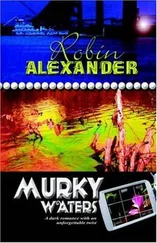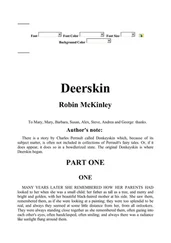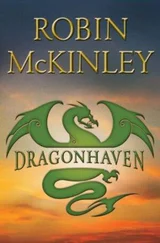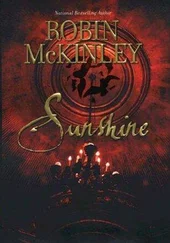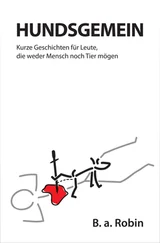Robin McKinley - Water
Здесь есть возможность читать онлайн «Robin McKinley - Water» весь текст электронной книги совершенно бесплатно (целиком полную версию без сокращений). В некоторых случаях можно слушать аудио, скачать через торрент в формате fb2 и присутствует краткое содержание. Год выпуска: 2002, ISBN: 2002, Издательство: Firebird, Жанр: Старинная литература, на английском языке. Описание произведения, (предисловие) а так же отзывы посетителей доступны на портале библиотеки ЛибКат.
- Название:Water
- Автор:
- Издательство:Firebird
- Жанр:
- Год:2002
- ISBN:9780142402443
- Рейтинг книги:4 / 5. Голосов: 1
-
Избранное:Добавить в избранное
- Отзывы:
-
Ваша оценка:
- 80
- 1
- 2
- 3
- 4
- 5
Water: краткое содержание, описание и аннотация
Предлагаем к чтению аннотацию, описание, краткое содержание или предисловие (зависит от того, что написал сам автор книги «Water»). Если вы не нашли необходимую информацию о книге — напишите в комментариях, мы постараемся отыскать её.
Water — читать онлайн бесплатно полную книгу (весь текст) целиком
Ниже представлен текст книги, разбитый по страницам. Система сохранения места последней прочитанной страницы, позволяет с удобством читать онлайн бесплатно книгу «Water», без необходимости каждый раз заново искать на чём Вы остановились. Поставьте закладку, и сможете в любой момент перейти на страницу, на которой закончили чтение.
Интервал:
Закладка:
“Paper glider,” he agreed. He walked round the pool, and picked her airplane up, and brought it back to the table. He unfolded it, carefully, pressing the folds straight with his fingers, smoothing and smoothing the wrinkles the bumped nose had made—as if paper were rare and precious, she thought, refusing to follow that thought any farther—and then, quickly, he folded it again, to a new pattern, a much more complex pattern, and when he tossed his glider in the air it spun up and then spiralled down in a lovely curve, and lit upon the floor as lightly as a butterfly.
She looked at him, and there was a sick, frightened feeling in her throat. “When you travel—long distances,” she said, “how—how do you go?” She could not bring herself to ask about cars and trucks and trains.
“We have horses and asses and ankaba,” he said. “You may walk or ride or lead a beast loaded with your gear. We have guides to lead you. We have waggoners who will carry you and your possessions. There are coaches if you can afford them; they are faster—and, they say, more comfortable, but I would not count on this.” He spoke mildly, as if this were an ordinary question, but his eyes were fixed on her face in such a way that made it plain he knew it was not.
Slowly she said, “What year is it, Zasharan?”
He said, “It is the year 3086, counting from the year Gasthamor came from the east and struck the Hills with the hilt of his sword, and the Well of the City of the Kings and Queens opened under the blow.”
“Gasthamor,” said Hetta, tasting the name.
“Gasthamor, who was the teacher of Oragh, who was the teacher of Semthara, who was the teacher of Frayadok, who was the teacher of Goriolo, who was the teacher of Luthe,” said Zasharan.
Gasthamor, she repeated to herself. Goriolo. She doubted that the encyclopedia would tell the tale of the warrior-mage who struck the rock with the hilt of his sword and produced a flow of water that would last over three thousand years, but an encyclopedia of legends might. “You—you said the Queen’s City, once before,” she said. “What is the name of your queen?”
“Fortunatar,” he said. “Fortunatar of the Clear Seeing.”
She woke to the sound of her own voice, murmuring, Gasthamor, Fortunatar of the Clear Seeing, the year 3086. Her heart was heavy as she went about her chores that day, and she told herself that this was only because it was two more days before she could go to the library again, and look up the kings and queens of Damar.
She made time to finish cleaning the pool at the back of the garden, hauling the blanket-weed—now a disgusting sticky brown mat—two heaped barrowloads of the stuff—to the compost heap. When she was done, she knelt on the crazy paving that edged the pool, and dipped her dirty hands in the water. The sting of its coolness was friendly, energising; her head felt clearer and her heart lighter than it had in several days. She patted her face with one wet hand, letting the other continue to trail in the water, and she felt a tiny flicker against her palm. She looked down, and there was a newt, swimming back and forth in a tiny figure eight, the curl of one arc inside her slightly cupped fingers. She turned her hand so that it was palm up, and spread her fingers. It swam to the centre of her palm and stopped. She thought she could just feel the tickle of tiny feet against her skin.
She raised her hand very, very slowly; as the newt’s crested back broke the surface of the water, it gave a frantic, miniature heave and scrabble, and she thought it would dive over the little rise made by the web between her forefinger and thumb, but it stilled instead, seeming to crouch and brace itself, as against some great peril. Now she definitely felt its feet: the forefeet at the pulse-point of her wrist, the rear on the pads at the roots of her fingers, the tail sliding off her middle finger between it and the ring finger. She found she was holding her breath.
She continued to raise her hand till it was eye level to herself; and the newt lifted its head and stared at her. Its eyes were so small, it was difficult to make out their colour: gold, she thought, with a vertical black pupil. The newt gave a tiny shudder and the startling red crest on its back lifted and stiffened.
They gazed at each other for a full minute. Then she lowered her hand again till it touched the pond surface, and this time the newt was gone so quickly that she stared at her empty palm, wondering if she had imagined the whole thing.
She heard bells ringing in her dreams that night, but they seemed sombre and sad. On the next night she thought she heard Zasharan’s voice, but she was lost in the dark, and whichever way she turned, his voice came from behind her, and very far away.
She stormed around the supermarket the next day, and when she found herself at the check-out behind someone who had to think about which carefully designated bag each item went into, she nearly started throwing his own apples at him. She arrived at the library with less than half an hour left, but her luck had found her at last, for there was a computer free. Queens of Damar, she typed. There was a whirr, and a list of web sites which mentioned (among other things) internationally assorted queens apparently not including Damarian, paint varnishes, long underwear, and hair dressing salons, presented itself to her hopefully. She stared at the screen, avoiding asking something that would tell her what she feared. At last she typed: Who is the ruler of Damar today?
Instantly the screen replied: King Doroman rules with the Council of Five and the Parliament of Montaratur.
There was no help for it. Queen Fortunatar of the Clear Seeing, she typed.
There was a pause while the computer thought about it. She must have looked as frustrated and impatient as she felt, because a librarian paused beside her and asked in that well-practised ready-to-go-away-without-taking-offense voice if she could be of service.
“I am trying to find out some information about the queen of Damar,” she said.
“Damar? Oh—Daria—oh—Damar. Someone else was just asking about Damar a few weeks ago. It’s curious how much we don’t hear about a country as big as it is. They have a king now, don’t they? I seem to remember from the independence ceremonies. I can’t remember if he had a wife or not.”
The computer was still thinking. Hetta said, finding herself glad of the distraction, “The queen I want is Fortunatar of the Clear Seeing.”
The librarian repeated this thoughtfully. “She sounds rather, hmm, poetical, though, doesn’t she? Have you tried myths and legends?”
The computer had now hung itself on the impossible question of a poetical queen of Damar, and Hetta was happy to let the librarian lean over her and put her hands on the keyboard and wrestle it free. The librarian knew, too, how to ask the library’s search engine questions it could handle, and this time when an answering screen came up, there was a block of text highlighted:
Shortly after this period of upheaval, Queen Fortunatar, later named of the Clear Seeing for the justice of her rulings in matters both legal and numinous, took her throne upon the death of her half-brother Linmath. Linmath had done much in his short life, and he left her a small but sound queendom which flourished under her hand. The remaining feuds were settled not by force of arms (nor by the trickery that had caught Linmath fatally unaware) but by weaponless confrontation before the queen and her counsellors; and fresh feuds took no hold and thus shed no blood. The one serious and insoluble menace of Fortunatar’s time were the sandstorms in the Great Desert which were frequent and severe.
Читать дальшеИнтервал:
Закладка:
Похожие книги на «Water»
Представляем Вашему вниманию похожие книги на «Water» списком для выбора. Мы отобрали схожую по названию и смыслу литературу в надежде предоставить читателям больше вариантов отыскать новые, интересные, ещё непрочитанные произведения.
Обсуждение, отзывы о книге «Water» и просто собственные мнения читателей. Оставьте ваши комментарии, напишите, что Вы думаете о произведении, его смысле или главных героях. Укажите что конкретно понравилось, а что нет, и почему Вы так считаете.

